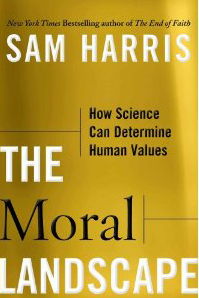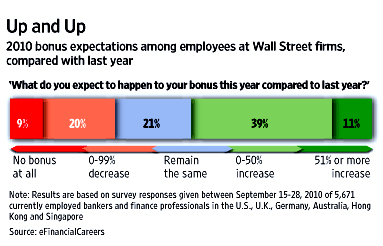
You’re welcome to send your Live Wire news tips or suggestions to [email protected].
Today’s Live Wire: Quick Links
- Palm Coast Pink Boots Update
- Comment of the Hour: Bunnell Summed Up
- Carl Hiaasen Nails Amendment 4
- Florida Senate Lurching Right
- Sitting Down With Nelson Mandela
- Child Porn or Thought Crime?
- Democracy for Sale: After Citizens United
- Wall Street Pay: A Record $144 Billion
- Leonard Bernstein on Beethoven’s 5th
- Science and Morality
- Today’s Limerick
- A Few Good Links
![]()
Live Wire Rewinds
![]()
Palm Coast Pink Boots Update: Lenny Grocki Keeps His Job

You’ve likely heard by now the story of Lenny Grocki, the city of Palm Coast utility employee who was sent home earlier this month for wearing pink boots to work, in commemoration of Breast Cancer Awareness Month, and was sent home again when he returned to work wearing pink shoelaces and pink socks. Last week he was told that if he returned to work yesterday, Oct.11, still wearing those pink accessories, he’d face disciplinary action. His story, published here, provoked quite a reaction and underscored all sorts of ironies–a city claiming to support a sober cause while reacting like a drunk lout toward one of its own, city council members actively seeking out pink symbolism down to the pinkness of bagels while deferring to the city’s dress code when it came to Lenny’s pinkness, and so on.
On Monday, Lenny did return to work. He was told to meet his supervisor and a witness at 1:30 p.m. They met. He was told that there’d been a look-see with the human resources, and that, since the city’s policy did not specify anything about accessories, Lenny could keep his pink shoelaces and pink socks. Case closed. Almost, anyway. Lenny tried to push the case: what about the boots? No, the boots won’t be allowed. (They’re not available, anyway: they’re on display at the Hollingsworth gallery. The city still considers pinking up the boots an act of defacement, and would rather stick to its brown and blue and black theme (brown shoes, that is, not shirts).
This being Palm Coast government, where authority crossed is an unforgiving crossing, look sometime in the future for a few changes in the city’s dress policy, and look for those changes to be justified under the banner of simple standardization. But don’t except the changes to be publicized. Personnel policies are the great repository of organizational control. “Management,” Peter Drucker once said, “is doing things right; leadership is doing the right things.” Sometimes Palm Coast’s leadership, which prides itself on airs of leadership, doesn’t know its right from its right.
See Also:
- The City of Palm Coast’s Problem With Breast Cancer Awareness Month? Not Regulation.
- Color and Provocation Surf Through Hollingsworth Gallery’s Latest Show
- A Wedding Made in Deli: How Aquarius Conquered Cancer
Comment of the Hour: Bunnell Summed Up
 From Haw Creek Girl on the story about Bunnell’s latest slip-shod policing: “There is only Elbert Tucker and Daisy Henry that have decent sense as ‘elected officials’. Catherine Robinson is very, very smart and very educated but has lost touch with the reality of the common man. The rest are blooming idiots as evidenced by Jenni Crain’s blatant disregard for the Sunshine Law (probably more truthful is her lack of knowing any better) and Jimmy Flynt’s blatant disregard for the law in general. Jenni and Jimmy both have reason to keep the police force from being effective. Jimmy’s arrogance has pretty much been brought to light and well, anytime you ride near Jenni’s house you will smell her reasons.” See the story.
From Haw Creek Girl on the story about Bunnell’s latest slip-shod policing: “There is only Elbert Tucker and Daisy Henry that have decent sense as ‘elected officials’. Catherine Robinson is very, very smart and very educated but has lost touch with the reality of the common man. The rest are blooming idiots as evidenced by Jenni Crain’s blatant disregard for the Sunshine Law (probably more truthful is her lack of knowing any better) and Jimmy Flynt’s blatant disregard for the law in general. Jenni and Jimmy both have reason to keep the police force from being effective. Jimmy’s arrogance has pretty much been brought to light and well, anytime you ride near Jenni’s house you will smell her reasons.” See the story.
See Also:
- Jimmy Flynt’s Ex-Cop Friends
- Bunnell Rebuffs Sheriff’s Offer to Provide Law Enforcement at 26% Less Than City’s Costs
- State Report Details Disturbing Patterns at Bunnell PD and Favors For Comm. Jimmy Flynt
- 2 Bunnell Cops Arrested; Commissioner Flynt Embroiled in Favoritism Allegations
- The Full State Attorney’s Investigative Report
Carl Hiaasen Nails Amendment 4
 From the Miami Herald: “Major home builders are uncorking a bombastic media blitz to scare Floridians away from voting yes to Amendment 4. The same people who helped ignite the housing crash and mortgage meltdown are absolutely terrified of giving citizens actual control over growth in their own communities. […] If the measure passes — and it needs the support of 60 percent of voters — no massive housing subdivision or commercial development could be built without the project first appearing on a ballot. It’s not exactly a radical concept, but the opposing special interests will do just about anything to kill it. They’re scared because they know Floridians are fed up with lousy planning and overbuilding, and the high taxes that always result. They’re scared because they know Floridians are sick of watching elected officials cave in again and again to developers, making a farce of land-use regulations. But mostly they’re scared because, if passed, Amendment 4 has the potential to disrupt the influence-peddling and outright corruption that’s made it so easy to subvert the will of the public.
From the Miami Herald: “Major home builders are uncorking a bombastic media blitz to scare Floridians away from voting yes to Amendment 4. The same people who helped ignite the housing crash and mortgage meltdown are absolutely terrified of giving citizens actual control over growth in their own communities. […] If the measure passes — and it needs the support of 60 percent of voters — no massive housing subdivision or commercial development could be built without the project first appearing on a ballot. It’s not exactly a radical concept, but the opposing special interests will do just about anything to kill it. They’re scared because they know Floridians are fed up with lousy planning and overbuilding, and the high taxes that always result. They’re scared because they know Floridians are sick of watching elected officials cave in again and again to developers, making a farce of land-use regulations. But mostly they’re scared because, if passed, Amendment 4 has the potential to disrupt the influence-peddling and outright corruption that’s made it so easy to subvert the will of the public.
“As things stand now, development interests can thwart opposition to projects by simply buying off the politicians whose votes are needed to make it happen. […]
This cynical charade has been going on since the beginning of statehood. It’s the reason so many Florida cities look like they were planned by chimpanzees on LSD.
It’s also the reason we now have an estimated 300,000 homes and condos sitting vacant statewide, while leading the nation in foreclosures as well as mortgage fraud. The term “growth management” is a joke. […] [I]t’s hard to imagine a system for managing growth that could possibly be more dishonest, or deaf to the public interest, than what we have now. Nobody with half a brain believes that development pays for itself. Study after study shows that residents are the ones who pay big-time for sprawl, which is why taxes are so brutal in Florida’s most densely populated counties. So is the cost of living. Clogged highways, overcrowded schools and jails, water shortages — we pay for all of it.
Opponents claim that Amendment 4 will actually raise taxes, one of many straight-faced lies that will saturate the airwaves between now and election day. This is well-financed desperation. […] Here’s the killer: Many of the companies bankrolling the ad campaign against Amendment 4 are recipients of a congressional bailout, in the form of humongous tax refunds earlier this year. […] So, when you see all those dire-sounding, fright-filled TV commercials, remember whose paying for them. You are. These guys are using your money to keep your voice, and your vote, out of the neighborhood planning process. Think about that when you’re standing in the voting booth on Nov 2.”
See Also:
- The New York Times On the “Hometown Democracy” Amendment
- Should population justify local growth-plan changes?
 From The Times: “The once-moderate Florida Senate is growing more conservative under incoming leader Mike Haridopolos in the wake of high-level staff firings and resignations that have thinned the ranks of Democrats in the upper chamber. The shakeup could leave the “New Senate” filled with the most Republican members and staff members since Reconstruction, which paves the way for swifter approval of budget and tax cuts, pension reform and conservative social issues. […] an overly partisan staff could fail to give the neutral, expert analysis needed to properly vet legislation ranging from taxes to criminal justice to the environment. A number of Senate staffers grew so worried about job security at the end of last year that many thought their party affiliations, Facebook, MySpace and Twitter posts were being monitored. […] But Sen. Paula Dockery, R-Lakeland, said the staff could see the dismissals as a warning that they risk their jobs “if they offer unbiased analysis on proposed policies that conflict with leadership’s political agenda.” […] Dockery said she found “most troubling is the rumor that the incoming administration was checking the political party affiliation of Senate staff as well as their information on social media sites. More than one staffer indicated that they felt pressure to switch their political party affiliation in order to keep their job.” The full story.
From The Times: “The once-moderate Florida Senate is growing more conservative under incoming leader Mike Haridopolos in the wake of high-level staff firings and resignations that have thinned the ranks of Democrats in the upper chamber. The shakeup could leave the “New Senate” filled with the most Republican members and staff members since Reconstruction, which paves the way for swifter approval of budget and tax cuts, pension reform and conservative social issues. […] an overly partisan staff could fail to give the neutral, expert analysis needed to properly vet legislation ranging from taxes to criminal justice to the environment. A number of Senate staffers grew so worried about job security at the end of last year that many thought their party affiliations, Facebook, MySpace and Twitter posts were being monitored. […] But Sen. Paula Dockery, R-Lakeland, said the staff could see the dismissals as a warning that they risk their jobs “if they offer unbiased analysis on proposed policies that conflict with leadership’s political agenda.” […] Dockery said she found “most troubling is the rumor that the incoming administration was checking the political party affiliation of Senate staff as well as their information on social media sites. More than one staffer indicated that they felt pressure to switch their political party affiliation in order to keep their job.” The full story.
Sitting Down With Nelson Mandela
 From the Johannesburg Mail & Guardian: “A new collection of Nelson Mandela’s private papers reveals his years of heartache at missing his family while in prison and his wariness at becoming idolised, in excerpts published Sunday. The book Conversations with Myself goes on sale on Tuesday, but passages printed in British and South African papers show his thoughts on everything from the danger of corruption in power to his grief at his son’s death. […] “One issue that deeply worried me in prison was the false image I unwittingly projected to the outside world; of being regarded as a saint,” he said in an excerpt printed in South Africa’s Sunday Times. “I never was one, even on the basis of the earthly definition of a saint as a sinner who keeps trying.” […]
From the Johannesburg Mail & Guardian: “A new collection of Nelson Mandela’s private papers reveals his years of heartache at missing his family while in prison and his wariness at becoming idolised, in excerpts published Sunday. The book Conversations with Myself goes on sale on Tuesday, but passages printed in British and South African papers show his thoughts on everything from the danger of corruption in power to his grief at his son’s death. […] “One issue that deeply worried me in prison was the false image I unwittingly projected to the outside world; of being regarded as a saint,” he said in an excerpt printed in South Africa’s Sunday Times. “I never was one, even on the basis of the earthly definition of a saint as a sinner who keeps trying.” […]
The book appears to invite a more rounded discussion of his life, while also focusing on the enormous personal sacrifices required by his devotion to the liberation struggle. “As a young man, I combined all the weaknesses, errors and indiscretions of a country boy, whose range of vision and experience was influenced mainly by events in the area in which I grew up and the colleges to which I was sent,” he wrote. “I relied on arrogance to hide my weaknesses,” he added. […] In a letter to a friend in 1987, he says that after writing to Winnie to say that their daughters had grown up well: “My beloved wife was furious … she reminded me: ‘I, not you, brought up these children whom you now prefer to me.’ I was simply stunned.” A poignant letter to a friend records his reaction after Thembi, the elder of two sons from his first marriage, died in a car crash at the age of 24 in 1969. He was not allowed to attend the funeral. […] Mandela himself isn’t expected to speak about the book’s release. His last public outing was a brief appearance at the World Cup final in July in Johannesburg.” The full story.
Child Porn or Thought Crime? In Polk County, There’s No Distinction
Understanding that Anthony Comstick had nothing on polk County Sheriff Grady Judd’s obsession with sex crimes in his domain, here’s the latest from Kemp Brinson’s Polk Law Blog: “The story is straightforward. According the record on appeal, Stelmack had some perfectly legal photographs of clothed young girls that he knew. He cut out their heads and attached them onto an image of the body of a nude 19-year-old from the internet. He kept the images in his briefcase and they were discovered. He was prosecuted and convicted of possession of child pornography. Are these collages really child pornography as defined by the relevant statute? […] After oral argument, the court will take the case under advisement and issue an opinion. It could be a year or more before an opinion is issued. We’ll probably have to wait a while for this one. I am not going to make a prediction on this one. It’s just too close to call. […] I encourage you to read the actual briefs filed in this case for yourself if you find this at all interesting. Overall, I think the defendants legal team did a much better job than the state of briefing this case.” The full post.
See Also:
- Polk Sheriff Subjects Teen Girls to Rape Exam–After Dates
- Mr. Stelmack’s Initial Brief
- State’s Answer Brief
- Mr. Stelmack’s Reply Brief
- ACLU’s Amicus Brief
- Mainland High School Coach John Maronto’s Prostitution Arrest: Hold Your Sanctimony
Democracy for Sale: After Citizens United
 The Boston Review runs a forum on the Supreme Court’s decision to strike down the McCain-Feingold campaign finance law (with Citizens United v. Federal Election Commission decision), and what it means for our democracy. From the Lawrence Lessing piece in the forum: “The Court was right to raise a red flag about a law that purported to block political speech. […] Unless that speech amounts to corruption. But here the Court was extremely narrow, and mistaken in my view, in its understanding of corruption. The only corruption the Court found that justifies the suppression of political speech is “quid pro quo” corruption. And as independent expenditures are, by definition at least, made independently of a political campaign, they cannot constitute quid pro quo corruption. There may be a quid. There may be a quo. But because the two are independent, there is no pro. […] Under our current system of campaign finance, however, there is no such overlap between the interests of voters and of contributors. There is instead a fundamental gap. That gap has many dimensions, but the simplest to remark is the geographical source of campaign funds. In the most critical cases, the vast majority of contributions are not even from the voters.”
The Boston Review runs a forum on the Supreme Court’s decision to strike down the McCain-Feingold campaign finance law (with Citizens United v. Federal Election Commission decision), and what it means for our democracy. From the Lawrence Lessing piece in the forum: “The Court was right to raise a red flag about a law that purported to block political speech. […] Unless that speech amounts to corruption. But here the Court was extremely narrow, and mistaken in my view, in its understanding of corruption. The only corruption the Court found that justifies the suppression of political speech is “quid pro quo” corruption. And as independent expenditures are, by definition at least, made independently of a political campaign, they cannot constitute quid pro quo corruption. There may be a quid. There may be a quo. But because the two are independent, there is no pro. […] Under our current system of campaign finance, however, there is no such overlap between the interests of voters and of contributors. There is instead a fundamental gap. That gap has many dimensions, but the simplest to remark is the geographical source of campaign funds. In the most critical cases, the vast majority of contributions are not even from the voters.”
“… the blindness to this more fundamental corruption—a corruption that has likely done more damage to the United States in the last decade than all of the quid pro quo corruption in American history combined—will continue to limit the imagination and conduct of both courts and legislatures.” The full essay.
See Also:
- The Full Forum
- Corruption Economy
- The Losing Role of Political Parties
Wall Street Pay: A Record $144 Billion
From the Wall Street Journal: “Pay on Wall Street is on pace to break a record high for a second consecutive year, according to a study conducted by The Wall Street Journal. About three dozen of the top publicly held securities and investment-services firms—which include banks, investment banks, hedge funds, money-management firms and securities exchanges—are set to pay $144 billion in compensation and benefits this year, a 4% increase from the $139 billion paid out in 2009, according to the survey. Compensation was expected to rise at 26 of the 35 firms. […] Overall, Wall Street is expected to pay 32.1% of its revenue to employees, the same as last year, but below the 36% in 2007. Profits, which were depressed by losses in the past two years, have bounced back from the 2008 crisis. But the estimated 2010 profit of $61.3 billion for the firms surveyed still falls about 20% short from the record $82 billion in 2006. Over that same period, compensation across the firms in the survey increased 23%.
See Also:
- From “Wall Street” to Sequel, a Sentimental Oliver Stone Manages a Ménage à Trois
- Losses Accelerating As Economy Drops 95,000 Jobs Overall; Private Sector Adds 64,000
- Six Things You Need to Know About Financial Regulation
- Opposition to the Mosque “At” Ground Zero Desecrates American Values
- Taking Stockman: How Nixon, Reagan, Bush and their GOP Demolished the Economy
Leonard Bernstein on Beethoven’s 5th
Part 2:
See Also:
- Coke, Pepsi, Haydn and Mozart
- A Musical Journey in the Key of Kindness
- Jonathan May, Conductor of Youths’ Fugues
 From Harriet Hall in Science-Based Medicine: “I have frequently said that science can only provide data to inform our decisions but can’t tell us what we “should” do; that it can determine facts but not values. I stand corrected. A persuasive new book by Sam Harris, The Moral Landscape, has convinced me that science can and should determine what is moral. In fact, it is a more reliable guide than any other option. […] With a background in both philosophy and neuroscience, [Sam Harris] points out that questions about values — about meaning, morality, and life’s larger purpose — are really questions about the well-being of conscious creatures. He says we know enough about the human brain and its relationship to events in the world to say that there are right and wrong answers to the most pressing questions of human life. He shows that it’s as senseless to claim morality is relative as to claim it is absolute. Morality cannot be understood as some Platonic ideal; it cannot be understood as whatever the preferred deity of one’s society has commanded; it cannot be dismissed as meaningless and varying with culture. Cultural relativism is stupid: we should never accept slavery or female genital mutilation as moral even in the societies that practice them believing they are moral. It is immoral and irrational to accept such practices out of political correctness and unwillingness to offend.
From Harriet Hall in Science-Based Medicine: “I have frequently said that science can only provide data to inform our decisions but can’t tell us what we “should” do; that it can determine facts but not values. I stand corrected. A persuasive new book by Sam Harris, The Moral Landscape, has convinced me that science can and should determine what is moral. In fact, it is a more reliable guide than any other option. […] With a background in both philosophy and neuroscience, [Sam Harris] points out that questions about values — about meaning, morality, and life’s larger purpose — are really questions about the well-being of conscious creatures. He says we know enough about the human brain and its relationship to events in the world to say that there are right and wrong answers to the most pressing questions of human life. He shows that it’s as senseless to claim morality is relative as to claim it is absolute. Morality cannot be understood as some Platonic ideal; it cannot be understood as whatever the preferred deity of one’s society has commanded; it cannot be dismissed as meaningless and varying with culture. Cultural relativism is stupid: we should never accept slavery or female genital mutilation as moral even in the societies that practice them believing they are moral. It is immoral and irrational to accept such practices out of political correctness and unwillingness to offend.
“[…] Science can have a great deal to say about morals. It can examine whether making women wear a burqa improves the well-being of a society. It can test whether corporal punishment has the beneficial results envisioned by those who prefer not to “spare the rod.” It can test whether abstinence-only education achieves its stated goal of reducing pre-marital sex. It can try to measure well-being. Well-being will be difficult to quantify, but not impossible. The environment and the individual’s response to it can be objectively studied. The important thing is to be willing to look at these issues and to try to evaluate moral questions through rational inquiry. It is no longer acceptable to claim that slavery would become moral if a society chose to practice it or to claim that homosexuality is an absolute evil.” The full post.
See Also:
- Creationism Creeping Back Into a Florida Science Textbook Is Necessarily Excised
- Dan Warren, Conqueror of St. Augustine at Its Bleakest, Still Heroic After All These Years
There was a young fellow named Goody
Who Claimed that he wouldn’t, but would he?
If he found himself nude
With a gal in the mood,
The question’s not woody but could he?
Other Limericks:
- The One About Alice from Dallas
- The One About a Young Monk from Siberia
- The One About the Young Violinist From Rio
- Suwanee River Woes
- Mine about to give ‘birth’ to 33 trapped Chileans
- Ten Years of Andrew Sullivan’s Daily Dish
- Lou Dobbs, American Hippocrite






























Leave a Reply